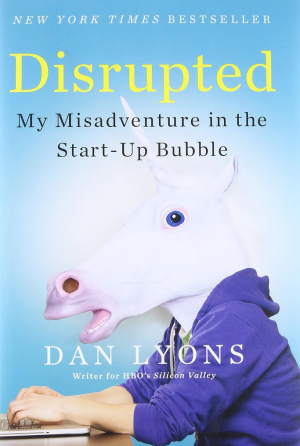Looking for a new opportunity as DevOps engineer
I am currently seeking a new opportunity as a DevOps Engineer, available from January 2026. I am open to remote or hybrid work from Prague, Czechia (Europe), for a long-term, full-time position or B2B contract. Please feel free to contact me for further details. You can also review my professional background on my LinkedIn profile.
Favorite Books#
Here are some of my favorite Books:
Books#
The Linux Programming Interface#
 Michael Kerrisk’s The Linux Programming Interface is a definitive guide to Linux and UNIX system programming. Covering over 500 system calls and library functions with clear C examples, it provides a thorough exploration of topics like file I/O, process management, multithreading, interprocess communication, and network programming. The book balances Linux-specific features (e.g., epoll, inotify) with POSIX standards, making it valuable for both Linux and UNIX developers.
Michael Kerrisk’s The Linux Programming Interface is a definitive guide to Linux and UNIX system programming. Covering over 500 system calls and library functions with clear C examples, it provides a thorough exploration of topics like file I/O, process management, multithreading, interprocess communication, and network programming. The book balances Linux-specific features (e.g., epoll, inotify) with POSIX standards, making it valuable for both Linux and UNIX developers.
Source code for a book - updated and actual version
Site Reliability Engineering#
 Site Reliability Engineering (SRE), written by Google’s SRE team, offers a comprehensive guide to managing large-scale, reliable systems. Divided into sections on principles, practices, and management, it covers key topics like service level objectives (SLOs), error budgets, automation, incident response, and reducing toil. Blending theory with real-world examples, it provides actionable insights for building scalable systems.
Site Reliability Engineering (SRE), written by Google’s SRE team, offers a comprehensive guide to managing large-scale, reliable systems. Divided into sections on principles, practices, and management, it covers key topics like service level objectives (SLOs), error budgets, automation, incident response, and reducing toil. Blending theory with real-world examples, it provides actionable insights for building scalable systems.
The Phoenix Project#
 The Phoenix Project by Gene Kim, Kevin Behr, and George Spafford is a business novel that introduces DevOps principles through the story of Bill Palmer, an IT manager tasked with saving his company’s failing Phoenix Project in 90 days. The book explores key concepts like The Three Ways (flow, feedback, and continuous improvement), lean thinking, and breaking down silos between teams.
The Phoenix Project by Gene Kim, Kevin Behr, and George Spafford is a business novel that introduces DevOps principles through the story of Bill Palmer, an IT manager tasked with saving his company’s failing Phoenix Project in 90 days. The book explores key concepts like The Three Ways (flow, feedback, and continuous improvement), lean thinking, and breaking down silos between teams.
Disrupted#
 by Dan Lyons is a memoir and business exposé that chronicles the author’s tumultuous year at HubSpot, a high-profile tech startup. Lyons, a veteran journalist in his 50s, joins HubSpot after being laid off from his previous job, only to find himself in a bewildering world of millennial-driven culture, cult-like company rituals, and questionable business practices. The book offers a sharp critique of startup culture, highlighting issues like ageism, job insecurity, and the prioritization of hype and perks over substance and experience.
by Dan Lyons is a memoir and business exposé that chronicles the author’s tumultuous year at HubSpot, a high-profile tech startup. Lyons, a veteran journalist in his 50s, joins HubSpot after being laid off from his previous job, only to find himself in a bewildering world of millennial-driven culture, cult-like company rituals, and questionable business practices. The book offers a sharp critique of startup culture, highlighting issues like ageism, job insecurity, and the prioritization of hype and perks over substance and experience.
Looking for a new opportunity as DevOps engineer
I am currently seeking a new opportunity as a DevOps Engineer, available from January 2026. I am open to remote or hybrid work from Prague, Czechia (Europe), for a long-term, full-time position or B2B contract. Please feel free to contact me for further details. You can also review my professional background on my LinkedIn profile.